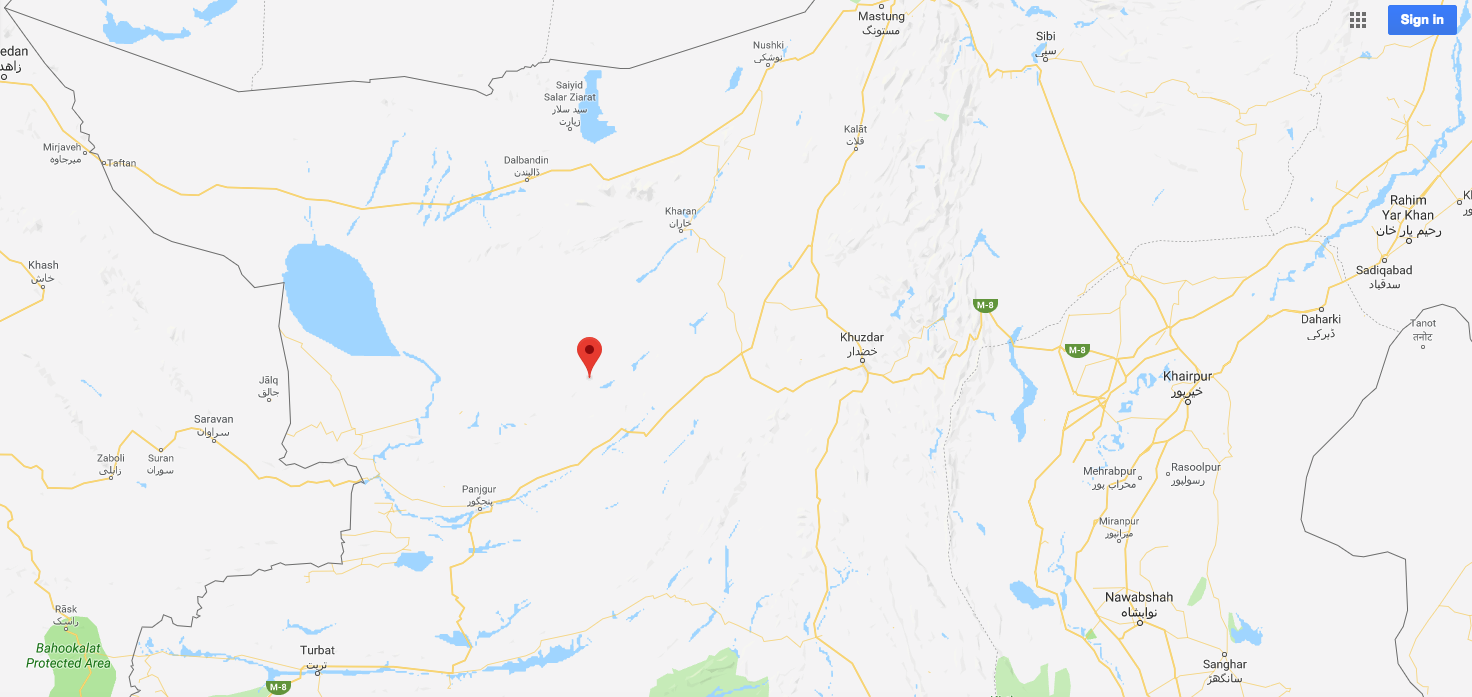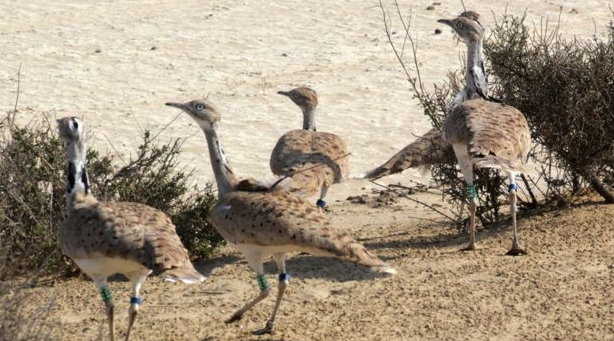Washuk is a very small town in central Balochistan, Pakistan. Remote, hot, dusty and very unpleasant in an “I’m-going-to-get-sick-and-die-here” kind of way.

It took me a day to get there from Dalbandin (see MyProject went Boom) on bad single-track roads and was to be the final stop on this part of my Pakistani odyssey. I planned to use the government hostel in Washukas a base to hunt for an old antimony mine we’d seen in the archived geological reports and maps for Balochistan. (Antimony can be found with gold so it’s a useful pathfinder mineral if you’re looking for the more valuable yellow metal.)
On the north side of the road, 20 minutes from Washuk, we passed a serious-looking chain link fence that went on for 3-4 kilometers. At one end of it was a complex of buildings with an airplane hanger, a small air traffic control tower and a sign saying the complex had been engineered by a company based in Devon, England. So, a modern-ish airstrip, British engineering, in the middle of bloody nowhere that didn’t appear to be a military strip and looked empty when we drove past.
My guide, the unflappable Naseem, enlightened me. The strip, officially named Shamsi, was built by the Royal Family of the United Arab Emirates. Their extended family and assorted hangers-on travelled there every year for 2 weeks in their private 747s to hunt Bustards, the world’s largest flying bird. The all-knowing Wikipedia adds more colour:
The disused Bhandari Airstrip was leased to the United Arab Emirates (UAE) by the Government of Pakistan in 1992 for game hunting, particularly that of falconry and rare Bustards in Balochistan province, by members of the UAE royal families. The airstrip, which was renamed “Shamsi” (meaning “Solar” in Arabic) by the Emirati Sheikhs, was developed into a jet capable airfield by the UAE.[2]

If you can afford to build an airport, you can afford to be generous so as a gesture of goodwill to the local population, the Sheikhs installed a large generator in nearby off-grid Washuk. They wired up the town to provide basic power to every house, naively anticipating that fridges, lights and air conditioning would be welcomed. But the ungrateful locals insisted that the Sheikh pay for diesel too, or they wouldn’t use the generator. The Sheikh refused and the whole town remained dark. My room at the hostel had a very fetching but totally useless lamp, boxy aircon unit and electric sockets.

Fast forward to the post 9/11 world in 2001. The Americans used Shamsi as one of their forward operating airbases for the invasion of Afghanistan. It’s one of the few airstrips close to southern Afghanistan capable of taking large military transport planes with little or no modification needed to the runway.
Much to the relief of the local Bustards who were left in peace for most of a decade, it subsequently became a covert US military drone airbase until Pakistan finally booted the Yanks out of the place in 2011.

